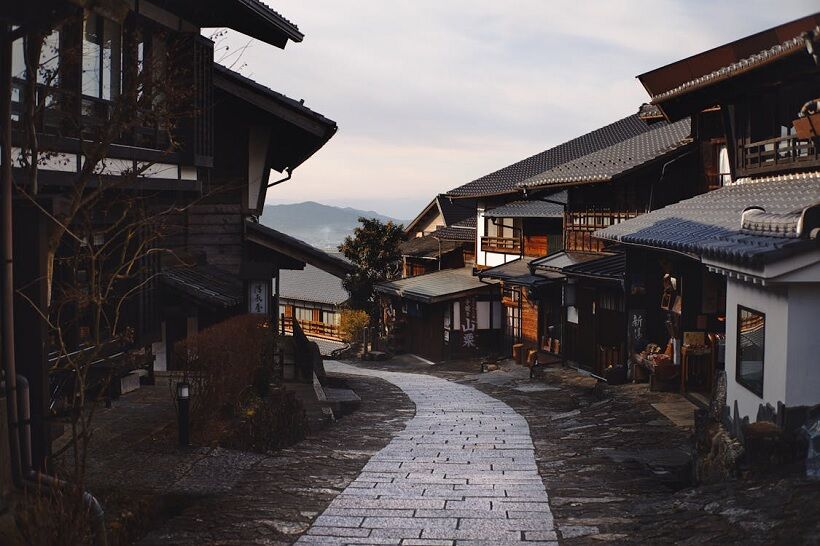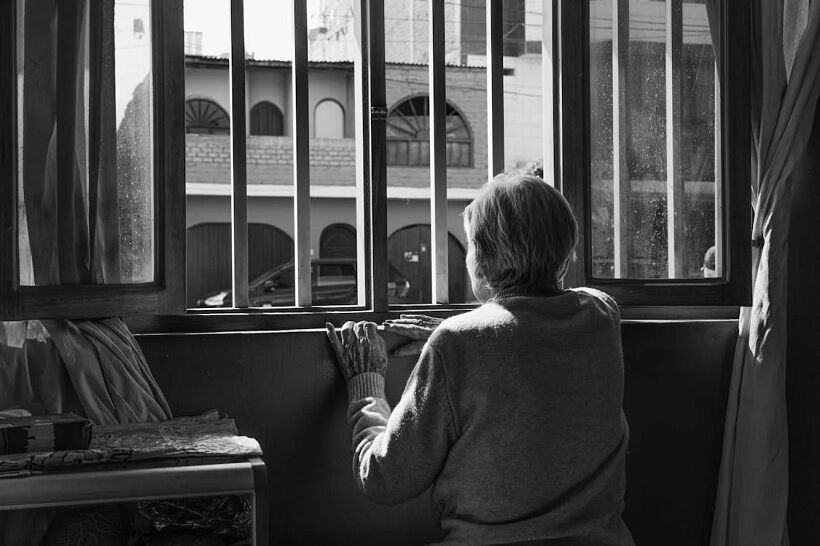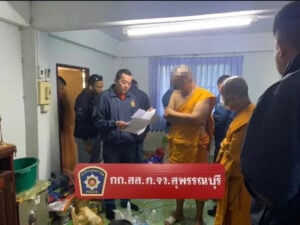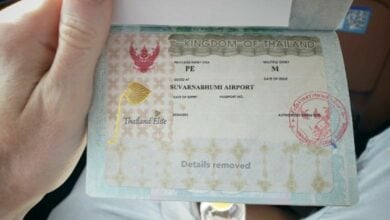Rural vs city retirement: Costs, healthcare, and lifestyle compared

Picking the perfect spot to retire in Thailand is like choosing between a cosy blanket and a thrilling book; both have their charms! If you’re mulling over this big step, it’s cool to weigh up the laid-back vibes of rural areas against the lively buzz of its cities. Fancy a quiet nook surrounded by nature? After retirement, rural Thailand could be your slice of paradise, where life takes it easy and living costs tend to be friendlier on the wallet. But if you’re after a splash of culture, convenience at your fingertips, and top-notch healthcare facilities, Thai cities are bustling hubs just waiting to be explored.
Deciding whether you’re more suited to the peaceful countryside or the exciting pulse of city life like Bangkok or Chiang Mai means thinking about what makes you happiest. Do health care needs, social butterflies fluttering around you, or lifestyle vibes matter most? In rural spots, expect heartwarming tranquillity and a close-knit feel with traditional Thai ways. Cities, conversely, are your ticket to an energetic lifestyle filled with fun hangouts and lots of new friends.
When dreaming up your retirement plans, don’t forget to consider all those practical bits too. City life means hopping on public transport easily or catching taxis without fuss – not to mention breathing in that cleaner countryside air and soaking up scenic views can be super refreshing. Each option has its perks and quirks. Let’s dive into these choices together so you can pick a retirement dream that feels just right for you.
Quality of life in urban vs rural retirement
When considering retirement in Thai rural places versus cities, the quality of life emerges as a critical factor influenced by several considerations, including the cost of living, accessibility to healthcare services, and each location’s cultural and social dynamics.
Cost of living comparison
Relocating to the countryside in Thailand presents a financially advantageous option, particularly for those contemplating retirement. Envision residing in a comfortable home acquired at a modest cost, amidst serene natural surroundings, where daily essentials are remarkably economical. Indeed, opting for a rural setting for one’s retirement years can significantly extend the longevity of one’s savings. Conversely, urban centres like Bangkok or Chiang Mai present vibrant lifestyles for individuals who excel in dynamic settings. These cities feature a selection of high-end dining establishments and a wide range of entertainment options.
Accessibility to healthcare services
Thailand is renowned for its healthcare system, distinguished by both affordability and high quality. Nevertheless, the accessibility of these services diverges significantly between rural and urban areas. Urban centres such as Bangkok boast advanced medical facilities, offering an extensive array of treatments and services delivered by highly skilled professionals. This guarantees that retirees residing in urban areas enjoy prompt access to superior healthcare. Conversely, while rural regions do provide healthcare facilities, they typically feature a limited range of speciality services and clinics. Additionally, transportation to larger hospitals for specialized treatments may pose a challenge.
Cultural and social dynamics
If you’re curious about the vibes in Thai city and countryside spots, you’re in for a treat because they’re worlds apart but both offer something special. Living it up in a city means you can dive into cool cultural stuff like art galleries, museums, plays, and live music. Cities are also awesome melting pots of cultures, so you’ll get to meet folks from all corners of the globe and maybe even bump into some expat pals.
On the flip side, settling down in the countryside of Thailand is like stepping into traditional Thai life. It’s all about community vibes, local celebrations, and taking things easy – perfect if you’re dreaming of a chill retirement surrounded by nature. Rural life is big on gatherings that bring everyone together and activities that let you enjoy the great outdoors.
Accommodation and living costs

Housing options in the countryside
In exploring retirement in Thai rural places versus cities, it’s essential to consider how accommodation and living costs weigh in, especially in the countryside. Rural areas in Thailand offer a tranquil escape with ample space, surrounded by nature. Here, you can find comfortable housing at significantly lower costs compared to city living. For instance, a modest home in a rural area might cost as little as THB 5,000 per month to rent, a fraction of what you’d pay for a similar space in Bangkok or Chiang Mai. For those looking to purchase, prices vary widely based on location and property size, but generally, they remain much more affordable than in urban centres.
City living expenses
If you’re thinking about retiring in the lively cities of Thailand, you’re in for an exciting ride with a bit more to spend, especially on housing. Take Bangkok—Thailand’s beating heart—as the perfect example. It’s all about that energetic atmosphere and having everything at your fingertips, but yeah, it does mean spending a bit more. Eyeing an apartment in hotspots like Sukhumvit or Silom? They’re awesome for convenience since you’ve got everything close by, but prices can swing! You might snag a cosy one-bedroom for THB 15,000 or go all out on a fancy condo for over THB 60,000 with cool extras like pools and gyms. And even in spots known for being kinder to your wallet like Chiang Mai, choosing a place right in the city centre will nudge up your living expenses compared to picking a peaceful spot in the countryside.
Retirement visa and legal requirements

Navigating the nuances of retiring in Thailand, whether in bustling cities or tranquil rural locales, involves understanding the distinct visa and legal mandates designed to facilitate a smooth transition for retirees.
Differences in visa applications
When choosing between retirement in Thai rural places versus Thai cities, the visa application process remains consistent across destinations. You’ll require a Retirement Visa, contingent upon being 50 years of age or older. This process entails having a Thai bank account, securing a letter from your Thai bank, and providing necessary documentation such as photos, a departure card, and your passport. Key to note, irrespective of your chosen locale, is the necessity to secure an Extension of Stay (EoS) and Re-entry Permit (RP). While the EoS determines the legality of your stay, the RP allows for travel outside Thailand without affecting your EoS status.
Long-term stay considerations
Settling into your chosen retirement haven in Thailand, be it amidst the vibrant streets of a city or the serene landscapes of the countryside, further entails adhering to specific legal obligations to maintain your Retirement Visa. One such requirement is to report to the Immigration Police every 90 days to verify your address, a stipulation that helps ensure your compliance with Thai laws and your continued lawful stay. Choosing between the dynamic energy of Thai cities and the tranquil retreats of rural areas for retirement hinges on personal preferences and lifestyle desires. However, the legal and visa requirements form a consistent baseline across both settings, ensuring that your retirement journey in Thailand begins with a solid legal foundation.
Pros and cons of retiring in Thai rural areas
Lifestyle and environment
When considering retirement in Thai rural places versus Thai cities, the lifestyle and environment you’re seeking play a critical role. In rural Thailand, you encounter a significantly slower pace of life. This tranquillity is a stark contrast to the bustling city environment. Imagine waking up to the sounds of nature instead of traffic. However, this serene setting comes with drawbacks. Access to amenities that are readily available in cities can be limited. For instance, finding international cuisine or speciality healthcare services might require travel to a nearby city. Moreover, rural areas offer an abundance of natural beauty. You can enjoy lush landscapes and proximity to nature reserves and beaches, depending on your location.
Community and integration
Retiring in a rural Thai area presents a unique opportunity for deep cultural immersion. The community in rural areas tends to be tighter-knit, with locals often displaying a warming interest in newcomers. This can facilitate a more authentic integration into Thai culture, where you’ll likely learn the language faster and participate in local traditions and festivals. However, the level of English spoken in rural areas can be significantly lower than in cities, posing a challenge for communication initially. Social opportunities with fellow expats are also fewer, which might lead to a sense of isolation for some.
Pros and cons of retiring in Thai cities

Convenience and facilities
Retiring in Thai cities presents a blend of modern convenience and vibrant cultural experiences. Cities like Bangkok and Chiang Mai offer extensive healthcare facilities, with hospitals that provide high-quality medical services often staffed with English-speaking personnel. Shopping centres, international cuisine, and cultural sites abound, ensuring your retirement life is comfortable and stimulating. Public transport in cities is generally reliable and affordable, connecting various neighbourhoods efficiently.
Cost and congestion challenges
While retirement in Thai cities offers vibrant lifestyles and high-end facilities, it’s important to weigh these against the cost and congestion challenges. The cost of living in urban areas can be a major drawback for retirees. Expenses for housing, utilities, and leisure activities in cities like Bangkok significantly surpass those in rural locales. While diverse, Eating out and entertainment can also quickly add up, making it crucial to manage your retirement budget carefully. Traffic congestion is another significant concern. Thai cities, especially Bangkok, are notorious for their dense traffic and resultant air pollution.
Navigating healthcare in retirement

When considering retirement in Thai rural places versus Thai cities, healthcare accessibility emerges as a crucial factor in making an informed decision. Each option offers distinct advantages and challenges, which are vital to understanding a fulfilling retirement experience.
Rural healthcare accessibility
Retiring in a rural area of Thailand means embracing tranquillity and a slower pace of life, but it also involves planning for healthcare access. In these areas, healthcare facilities might not match the breadth or sophistication of those in urban centres. You might find basic clinics and small hospitals catering to immediate and uncomplicated health needs. For more specialized treatment, travelling to a city hospital is often necessary, which can be time-consuming and requires careful emergency planning.
City healthcare advantages
Contrastingly, retiring in a Thai city presents significant healthcare advantages. Cities like Bangkok and Chiang Mai boast world-class hospitals that offer a wide range of services, from routine check-ups to specialized surgeries. These facilities are often staffed by medical professionals who are fluent in English, reducing the language barrier significantly. Accessibility to healthcare in cities is also superior, with multiple options for transport to and from medical facilities. Cities also host a larger number of private healthcare providers, offering quicker access to medical care without the long wait times that can be experienced in public hospitals.
Discover the remarkable benefits of yoga for elders, a practice that not only enhances flexibility and strength but also promotes mental well-being. By integrating yoga into their lifestyle, elders can unlock a surprising power, leading to improved health, increased vitality, and a deeper sense of peace in their golden years.

































